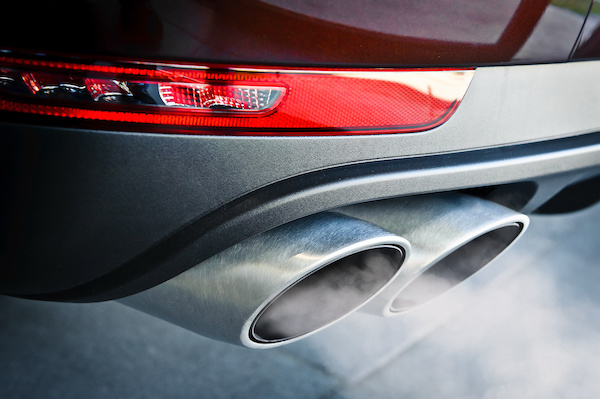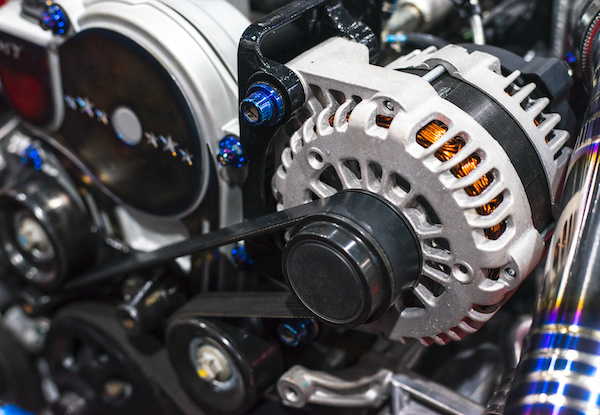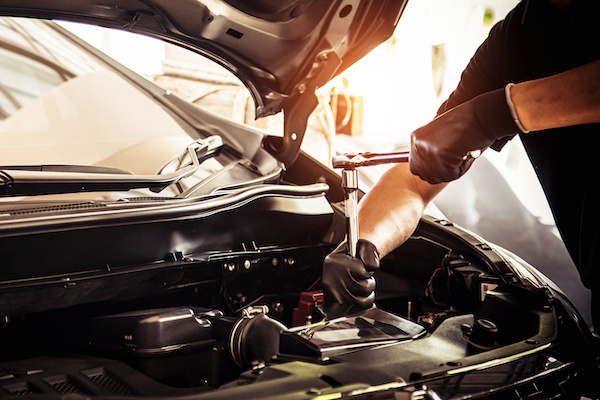Posted on 12/21/2022
.jpeg)
Winter can be a tough time for your car. Cold temperatures can cause all sorts of issues, from dead batteries to frozen door locks. In this blog post, we'll explore some of the ways that winter temperatures can affect your car, and what you can do to prepare for the cold. Batteries Cold temperatures can be hard on car batteries, as they can cause a chemical reaction that reduces their ability to hold a charge. This means that your battery may not have enough power to start your car on a cold winter morning. To help prevent this issue, it's a good idea to have your battery tested before winter starts. You can do this at most auto parts stores or at a mechanic. If your battery is more than three years old, it might be a good idea to replace it before the winter weather hits. Oil Thicker oil is needed in the winter to help reduce friction and protect your engine. If you're due for an oil change, make sure to switch to a winter-grade oil before the cold weather arrives. D ... read more
Posted on 11/30/2022

If your vehicle is running exceptionally louder than usual and not as efficiently as it used to, it may be time to take a look at your muffler. The good news is that a muffler can be repairable. And sometimes, it may be another part of the exhaust system at fault. Before we get into the signs of a bad muffler, you should be familiar with what the muffler does. As the name suggests, a muffler is responsible for dampening engine sounds and limiting vehicle emissions. That is why you may notice the 3 following symptoms when your muffler is bad or broken: Sign #1: Your engine is noisy. When your muffler stops working, it won’t be able to dampen your engine sounds as well. So instead of a quiet car ride, your vehicle will run loud when accelerating. Additionally, it may rattle when you idle. Sign #2: Your car releases a lot of fumes. If you notice an excessive amount of exhaust fumes, it could be your muffler that is the problem. It might ha ... read more
Posted on 10/27/2022

The most frequent causes of a car not starting are a worn-out or dead battery, frayed or corroded connection wires, a faulty alternator, or an issue with the starter. It can be difficult to determine whether a battery or alternator problem is present. Here's how to identify the offender. Consider a failing battery, a loose or corroded connection, or an electrical draw if your car cranks slowly, starts inconsistently, is harder to start on chilly mornings, or doesn't make any sound or light up the interior when you try to start it. A low battery with terminal corrosion that is obvious is likely damaged. If a jumpstart is successful, a battery issue is present. However, you must also determine whether it is just nearing the end of its life or whether there are more serious problems. A malfunctioning alternator may be the cause of a dead or depleted battery. No-starting and difficult starting, dimmer lights, and issues with sound system output are a few of the things to watch out ... read more
Posted on 9/28/2022

When it comes to automotive maintenance, the 30,000-mile, 60,000-mile, and 90,000-mile marks are very important. You might have seen the numbers jumbled up together to be called the 30/60/90K plan. What makes this so-called plan so significant? Read on to learn more. While the numbers may seem daunting at first, they are simply checkpoints or intervals at which your automaker has set forth certain maintenance tasks. Every 30,000 miles, give or take, your car should undergo a series of services to benefit the overall health of your car. Another term that is commonly interchangeable with this service is factory-scheduled maintenance. Many motorists believe that this is a fancy way for automakers to scheme and come for their customers’ wallets. However, that is far from the case. In fact, these services aren’t required to be done at the dealership at all. At Torque Automotive, we are proud to help our customers with 30/0/90K maintenance to impro ... read more
Posted on 8/31/2022

The term “spongy” brake pedals simply means that your brake pedals feel squishy, soft, and generally slow responding. While you may try to brush it off, a sponge-like brake pedal is extremely dangerous as it alters your car’s stopping power or time. Read on to learn what could be causing your spongy brake pedals. 1. Loose or Leaky Brake Lines If the brake fluid lines are loose or holy, it will cause a brake fluid leak. When your braking system loses the hydraulic pressure, your braking power will decrease. 2. Worn Brake Components Another explanation for your spongy brake pedal is a potential mechanical problem with the brake parts themselves. Your braking system is complex and comprises many parts, including brake pads, calipers, and more. 3. Problem with the Power Booster The power booster assists you with easy braking. Otherwise, you’d have to apply a lot more pressure to stop your car. If there is an issue with this piece, it can cause the brake pedal ... read more